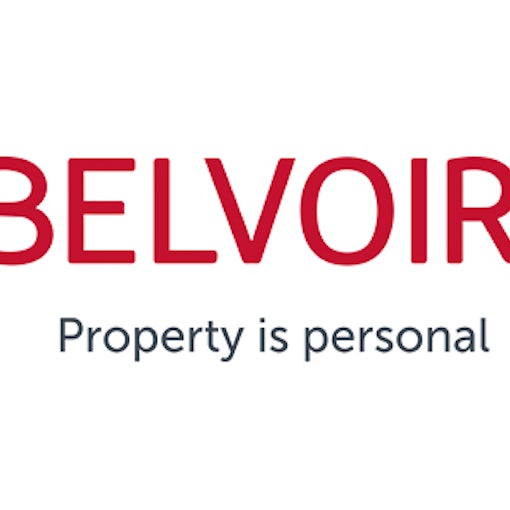Rules, regulations and legal protections are bound under civil law – meaning they cannot be enforced by the police.
Here are some of the key rights and responsibilities of tenants and landlords.
What is a private landlord?
A private landlord is an individual who lets out their property. This could be in a shared property, a flat, a house, and it could be managed by the landlord or by an estate agent.
What is a guarantor?
Tenants might need a guarantor, especially if they are a student, young person renting for the first time, or can’t prove they can pay the rent.
The guarantor has to sign a legally binding document promising to pay the rent if the tenant defaults.
What is a tenancy?
A tenancy is a period of time you are renting a property.
They can be fixed-term, running for a set period of time like six months or a year, or periodic, running from a week-by-week, month-by-month basis.
What is a tenancy agreement?
This is a contract between a tenant and a landlord and must be fair and comply with the law.
It sets out the legal terms and conditions of your tenancy, such as procedure and time to give notice, as well as stating whether or not smoking and pets are permitted in the property.
But in law, both the landlord and tenant have particular rights and responsibilities regardless of whether there is a tenancy agreement in place.
Tenants’ rights: as a tenant, you have a right to:
- live in a property that’s safe and in a good state of repair
- have your deposit returned when the tenancy ends – and in some cases have it protected by government-backed tenancy deposit scheme (TDP)
- challenge excessively high charges
- know who your landlord is. Your landlord can be fined if they do not give you this information.
- live in the property undisturbed
- see an Energy Performance Certificate for the property
- be protected from unfair eviction and unfair rent
- be given at least 24 hours’ notice before your landlord attends the property – except in an emergency
- Tenants’ responsibilities
If there is a tenancy agreement, tenants must abide by the terms and conditions. But they must also:
- take good care of the property
- pay the agreed rent, even if repairs are needed or you’re in dispute with your landlord.
- pay other charges as agreed with the landlord – such as utility bills and council tax
- repair or pay for any damage caused by you, your family or friends
- only sublet a property if the tenancy agreement or your landlord allows it
- be able to prove their right to rent
Landlords’ responsibilities
As a landlord, you have a responsibility to:
- keep your rented properties safe and free from health hazards
- make sure all gas and electrical equipment is safely installed and maintained
- provide an Energy Performance Certificate for the property
- provide a gas safety certificate, if there are gas appliances in the property
- protect your tenant’s deposit in a government-approved scheme – you could be fined if you don’t
- check your tenant has the right to rent your property if it’s in England
give your tenant a copy of the How To Rent guide when they start renting from you - fit and test smoke alarms and carbon monoxide alarms
- follow fire safety regulations for property
- pay income tax on the property
have permission from any mortgage lender to rent out the property
take out any insurance on the property, such as buildings insurance or landlords insurance - pay any service maintenance charge on the property in a block of flats – unless that responsibility is delegated to the tenant
- provide your details to your tenant within 21 days if requested
carry you most of the repairs to the exterior and structure of the property, such as a leaky roof or faulty water pipes. - return any deposit at the end of the tenancy subject to any damage to the property or rent arrears
- detail how the rent is to be paid and when
- provide weekly-paying tenants with a rent book
- only increase rent at particular times or in particular circumstances
What if I can’t pay the rent?
Do not ignore rent arrears, you could be evicted and lose your deposit. You could also have to pay court costs. If you are struggling, housing benefit might be able to help but it might not cover all your costs.
If you fall behind, speak to your landlord as soon as possible. You can explain why you have fallen behind and you might be able to come to a private arrangement to fix your arrears.
It can be expensive for landlords to replace a tenant, and they are more likely to try to keep you in place than evict you.
Can I leave early?
If you leave before the tenancy ends, you still have to pay the rent. Some contracts include a ‘break clause’ which gives you the option of giving notice before the end of your term.
Otherwise you will have to negotiate with your landlord.
Joint tenancy
Whether you are living with a partner or with housemates, singing a joint tenancy means you are all responsible for paying the rent.
It also means a fixed-term tenancy can only be ended early if all the tenants agree – and so must the landlord. If any of you leave, the landlord can still ask one or all of you for the money. If the rent isn’t paid, those remaining in the house can be evicted.
Eviction
If you are in rent arrears or have broken your tenancy agreement your landlord can apply to the courts to have you evicted.
If you have an assured shorthold tenancy, you are unlikely to win the right to stay in your home.
The specific legal procedure that has to be followed to evict a tenant depends on the type of tenancy and the reasons for the eviction.
If a landlord forces a tenant to leave without following the correct procedure they may be carrying out an illegal eviction – which is a criminal offence.
If you would like to speak to one of our expert team for more advice as a landlord or tenant please call us on 0151 256 0880 or email westderby@belvoir.co.uk








